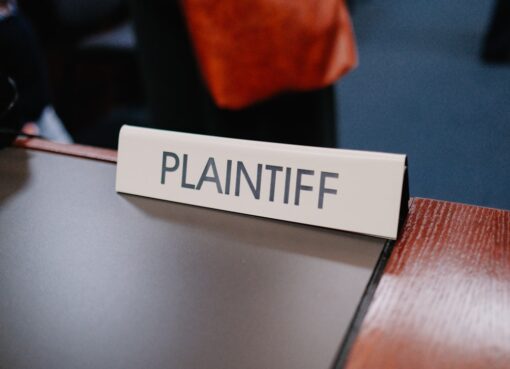Understanding the Power of Attorney Form in Florida

A power of attorney (POA) form is a legal document that allows an individual, known as the principal, to appoint someone else, known as the agent or attorney-in-fact, to make decisions and take actions on their behalf. This document is commonly used in situations where the principal is unable to make decisions due to illness, disability, or absence. The agent is given the authority to handle various matters such as financial transactions, real estate transactions, healthcare decisions, and other legal matters as specified in the POA form.
The power of attorney form is a crucial legal tool that can provide peace of mind and protection for individuals who may become incapacitated or unable to manage their affairs. It allows the principal to designate a trusted person to act on their behalf and make important decisions when they are unable to do so themselves. This legal document can be tailored to meet the specific needs and preferences of the principal, and it is important to carefully consider the scope and limitations of the powers granted in the POA form.
Key Takeaways
- A Power of Attorney form is a legal document that allows an individual (the principal) to appoint someone else (the agent or attorney-in-fact) to make financial, legal, and medical decisions on their behalf.
- In Florida, there are different types of Power of Attorney forms, including General Power of Attorney, Limited Power of Attorney, Durable Power of Attorney, and Springing Power of Attorney, each with its own specific purposes and limitations.
- The role of the agent in a Power of Attorney is to act in the best interest of the principal, make decisions as outlined in the document, and avoid any conflicts of interest.
- Legal requirements for a Power of Attorney in Florida include the principal being of sound mind, the document being signed in the presence of witnesses, and the agent being at least 18 years old and not legally incapacitated.
- There are limitations and restrictions to a Power of Attorney in Florida, such as the agent not being able to make decisions after the principal’s death, and the document not being valid for certain healthcare decisions unless specified. It is important to seek legal advice when creating or revoking a Power of Attorney in Florida to ensure all legal requirements are met and to understand the implications of the document.
Types of Power of Attorney in Florida
In Florida, there are several types of power of attorney forms that individuals can use to appoint an agent to act on their behalf. The most common types include general power of attorney, limited power of attorney, durable power of attorney, and healthcare power of attorney.
A general power of attorney grants the agent broad authority to handle the financial and legal affairs of the principal. This type of POA is often used for temporary situations or specific transactions, such as selling property or managing investments. A limited power of attorney, on the other hand, grants the agent specific and limited powers to act on behalf of the principal for a designated period of time or for a specific purpose.
A durable power of attorney remains in effect even if the principal becomes incapacitated or mentally incompetent. This type of POA is particularly important for individuals who want to ensure that their affairs are managed in the event of a disability or illness. A healthcare power of attorney, also known as a medical power of attorney, allows the agent to make healthcare decisions on behalf of the principal if they are unable to do so themselves.
Understanding the Role of the Agent
The agent, also known as the attorney-in-fact, plays a crucial role in the power of attorney arrangement. When appointed by the principal, the agent is entrusted with the authority to make decisions and take actions on behalf of the principal. It is important for the agent to understand their responsibilities and obligations under the power of attorney arrangement.
The agent must act in the best interests of the principal and make decisions that align with the wishes and preferences of the principal. They must also keep accurate records of all transactions and decisions made on behalf of the principal. The agent should communicate regularly with the principal and keep them informed about any actions taken on their behalf.
It is important for the agent to exercise their powers prudently and responsibly, and to avoid any conflicts of interest. They should seek legal advice or guidance when necessary, especially when dealing with complex financial or legal matters. The agent’s role is one of trust and fiduciary duty, and they must always act in accordance with the law and in the best interests of the principal.
Legal Requirements for a Power of Attorney in Florida
| Legal Requirements | Description |
|---|---|
| Capacity | The person creating the power of attorney must be of sound mind and understand the document they are signing. |
| Witnesses | The power of attorney document must be signed by two witnesses who are not named in the document and who are over the age of 18. |
| Notarization | While not required by law, having the power of attorney document notarized can provide additional assurance of its validity. |
| Specificity | The powers granted in the power of attorney document must be clearly defined and specific. |
| Revocation | The person creating the power of attorney has the right to revoke it at any time, as long as they are still of sound mind. |
In Florida, there are specific legal requirements that must be met in order for a power of attorney form to be valid. The POA form must be signed by the principal in the presence of two witnesses and a notary public. The witnesses must also sign the document in the presence of each other and in the presence of the principal.
The power of attorney form must clearly specify the powers granted to the agent, as well as any limitations or restrictions on those powers. It is important for the POA form to be clear and specific in order to avoid any misunderstandings or disputes in the future. The document should also include a statement indicating whether it is a durable power of attorney, meaning it remains in effect even if the principal becomes incapacitated.
It is important for individuals in Florida to ensure that their power of attorney form complies with all legal requirements in order to be valid and enforceable. Seeking legal advice from an experienced attorney can help ensure that the POA form meets all necessary legal standards and provides the intended protections and benefits for the principal.
Limitations and Restrictions of a Power of Attorney in Florida
While a power of attorney can be a valuable tool for managing one’s affairs, there are limitations and restrictions that individuals should be aware of when creating a POA form in Florida. The powers granted to the agent must be clearly defined in the document, and any limitations or restrictions on those powers should also be specified.
For example, a principal may choose to limit the agent’s authority to certain types of transactions or specify that certain actions require their approval. Additionally, there are certain actions that cannot be authorized through a power of attorney, such as making or revoking a will, voting on behalf of the principal, or making decisions about personal relationships.
It is important for individuals creating a power of attorney in Florida to carefully consider the scope and limitations of the powers granted to the agent. This can help prevent any misunderstandings or disputes in the future and ensure that the POA form accurately reflects their wishes and preferences.
Revoking a Power of Attorney in Florida

In Florida, a power of attorney can be revoked by the principal at any time, as long as they are mentally competent to do so. There are several ways to revoke a POA form, including executing a written revocation document, destroying the original POA form with the intent to revoke it, or creating a new power of attorney that explicitly revokes the previous one.
It is important for individuals who wish to revoke a power of attorney to notify their agent and any relevant third parties, such as banks or financial institutions, about the revocation. This can help prevent any unauthorized actions or transactions from taking place on behalf of the principal.
Seeking legal advice from an attorney can be helpful when revoking a power of attorney in Florida, especially if there are complex legal or financial matters involved. An experienced attorney can provide guidance on the proper steps to take in order to effectively revoke a POA form and protect the interests of the principal.
Importance of Seeking Legal Advice for a Power of Attorney
Creating a power of attorney is an important legal decision that can have significant implications for an individual’s financial and personal affairs. Seeking legal advice from an experienced attorney can help ensure that the POA form meets all necessary legal requirements and provides the intended protections and benefits for the principal.
An attorney can provide valuable guidance on selecting the appropriate type of power of attorney for specific needs and preferences. They can also help draft a clear and comprehensive POA form that accurately reflects the wishes and intentions of the principal. Additionally, an attorney can provide advice on selecting a trustworthy and reliable agent, as well as guidance on understanding the role and responsibilities of both the principal and the agent.
Legal advice is particularly important when dealing with complex financial or legal matters, such as managing investments, real estate transactions, or healthcare decisions. An attorney can provide valuable insight into potential risks and pitfalls associated with certain powers granted in a POA form, as well as guidance on how to protect against potential abuse or misuse of authority by an agent.
In conclusion, a power of attorney form is a crucial legal document that allows an individual to appoint someone else to make decisions and take actions on their behalf. In Florida, there are various types of power of attorney forms with specific legal requirements that must be met for validity. Understanding the role of the agent, limitations and restrictions, revocation process, and seeking legal advice are all essential aspects when creating a power of attorney in Florida. It is important for individuals to carefully consider their options and seek professional legal advice to ensure that their power of attorney meets all necessary legal standards and provides them with peace of mind and protection for their future.
If you’re looking for more information on power of attorney forms in Florida, you may want to check out this article on courtclimbers.com. This website offers valuable insights and resources on legal matters, including power of attorney forms and their implications in the state of Florida. It’s always important to stay informed and educated on legal matters, especially when it comes to important documents like power of attorney forms.
FAQs
What is a power of attorney form in Florida?
A power of attorney form in Florida is a legal document that allows an individual (the “principal”) to appoint someone else (the “agent” or “attorney-in-fact”) to make decisions and act on their behalf in legal, financial, and other matters.
What are the different types of power of attorney forms in Florida?
In Florida, there are several types of power of attorney forms, including general power of attorney, limited power of attorney, durable power of attorney, and healthcare power of attorney. Each type serves a different purpose and grants different levels of authority to the agent.
How do I create a power of attorney form in Florida?
To create a power of attorney form in Florida, the principal must be of sound mind and sign the document in the presence of two witnesses and a notary public. It is recommended to consult with an attorney to ensure that the form complies with Florida state laws and meets the specific needs of the principal.
What are the responsibilities of an agent named in a power of attorney form in Florida?
The agent named in a power of attorney form in Florida is legally obligated to act in the best interests of the principal and make decisions in accordance with the principal’s wishes. The agent must also keep accurate records of all transactions and decisions made on behalf of the principal.
Can a power of attorney form in Florida be revoked?
Yes, a power of attorney form in Florida can be revoked at any time by the principal as long as they are of sound mind. The revocation must be in writing and delivered to the agent, and any third parties who have been relying on the power of attorney should be notified of the revocation.
Leave a Reply
You must be logged in to post a comment.



Leave a Comment